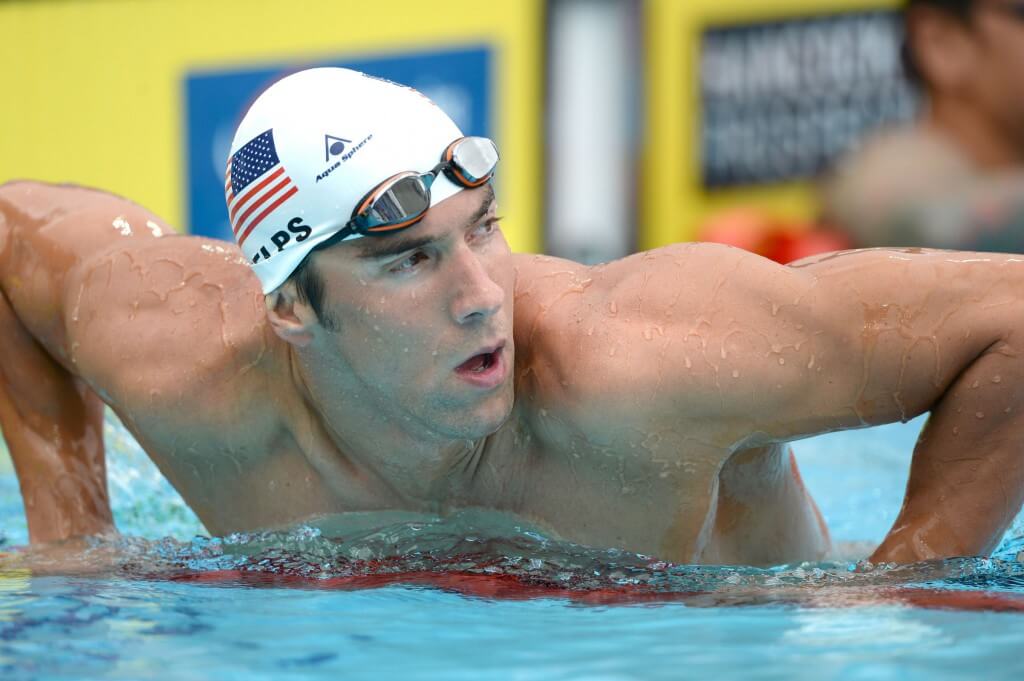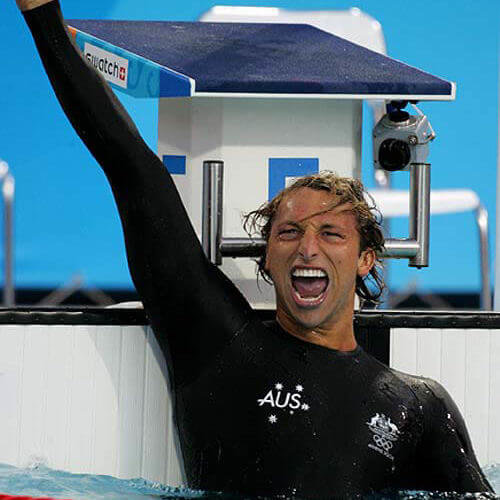Throwback Thursday: On Aussie Soil, Michael Phelps Erased All Doubt – He Was King

Throwback Thursday: On Aussie Soil, Michael Phelps Erased All Doubt – He Was King
In this latest edition of World Record Flashback, we revisit the 2007 World Championships in Melbourne, where Michael Phelps—in the homeland of some doubters—proved his status as the premier athlete in the pool.
Sometimes, it’s hard to admit the truth. It’s difficult to let go of something with significant meaning and national pride. It’s tough to tip the cap to another, since such a gesture may seem like the betrayal of a long-adored hero.
But there, too, are days when reality sets in. In some instances, the deniers awaken and come to a moment of clarity. Finally, they recognize what those around them have already acknowledged. And for those who continue to hold out, their opinions—and credibility—fade into oblivion.
When the World Championships headed Down Under in early 2007, a debate burned. Had American superstar Michael Phelps supplanted Australian legend Ian Thorpe in the sport’s hierarchy? Although the rest of the world had predominantly accepted this changing of the guard, the Aussies were not ready. It didn’t matter that Phelps had won six titles at the 2003 World Champs or collected eight medals at the 2004 Olympic Games in Athens. And it wasn’t enough that additional global success was earned in 2005 and 2006.
THORPE, A GLOBAL ICON
In Australia, a nation with a tremendous history in the sport and a deep appreciation for its stars, Ian Thorpe remained atop swimming’s totem pole. The owner of a dazzling portfolio, Thorpe was an icon of the pool, a man who wowed at a home Olympiad in 2000 and captured a pair of individual titles at the Athens Games. Included from the Olympics’ return to Greece was a triumph in the “Race of the Century,” a clash in the 200-meter freestyle between Thorpe, Dutch rival Pieter van den Hoogenband and Phelps, the upstart of the trio.

Photo Courtesy: Delly Carr
It was Thorpe’s victory in that epic race that emboldened the Australian claim that Thorpe was still No. 1. Truthfully, with no one sniffing his world records in the 200 freestyle and 400 freestyle, there was a semblance of an argument—at least until Phelps’ accomplishments were laid out:
- Butterfly world records;
- Global standards in each of the individual medley disciplines;
- A rapidly growing impact on the 200 freestyle;
- And a general breakout as a guy with an indescribable range of skills and unlimited upside.
Ahead of the World Champs, which were held in March at the Rod Laver Arena, legendary Aussie coach Don Talbot weighed in whether Phelps had ascended the throne. A few years earlier, the Hall of Famer scoffed at the notion of the young American bouncing Thorpe from his perch, and Talbot again was not prepared to pass the proverbial torch.
“Thorpe is still No. 1 in my opinion, and Phelps doesn’t outdo him yet,” Talbot said.
In fairness, Talbot followed his initial comment with the caveat that Phelps had the potential to eclipse Thorpe if he maintained his arc of success. But by the time the action in Melbourne came to a close, Talbot—like it or not—had no excuses remaining. In what might be the best week of his career (including his eight-gold show at the 2008 Beijing Olympics), Phelps railroaded the competition. He left Australia with seven gold medals and five world records, and if not for a Team USA disqualification in the preliminaries of the 400 medley relay, he would have had an eighth title.
LEAVING NO DOUBT
It was the 200 freestyle, though, that carried the most significant weight in leaving no doubt that Phelps had surpassed Thorpe on the all-time list of greats.
Although he hadn’t raced since the Athens Games, Thorpe’s name remained synonymous with the 200 freestyle at the time of the 2007 World Champs. The world record holder at 1:44.06, Thorpe established a gap between himself and the rest of the world that was more like a chasm—and comparable to what Phelps had managed in the 200 butterfly and both medley events. Yet, Phelps and Coach Bob Bowman knew something special was attainable for the American, and Thorpe’s ownership of the world record only enhanced their pursuit.
As the athletes climbed the blocks for the final of the 200 freestyle on March 27, only van den Hoogenband figured to offer a challenge to Phelps. Indeed, the Olympic champion fought valiantly, but ultimately watched Phelps leave him behind in a wake that “Hoogie” had never experienced—and that he would acknowledge after the race.
At the first turn, Phelps held a small advantage over van den Hoogenband, with both men under world-record pace behind respective splits of 24.47 and 24.53. They remained close and were still ahead of world-record pace at the midway point of the race, with Phelps turning in 51.00 and van den Hoogenband at 51.17. On the third length is where Phelps made his move, opening up a 1:17.73 to 1:18.16 margin, and clearly headed into the final 50 meters with momentum.
Down the last lap, Phelps easily pulled away from van den Hoogenband, his split of 26.13 a pool away from “Hoogie’s” finishing lap of 28.12. More important, Phelps wrested the world record from Thorpe, as his clocking of 1:43.86 was .20 faster than the time that Thorpe used to win at the World Championships in Fukuoka, Japan in 2001.
“I just wanted to take it out,” Phelps said. “I had to get out after the first 100, take a step in the third 50, and let the adrenaline go. I’m pretty happy with that. It hurt, but I’m really excited. I did want to race (Thorpe), and I’m a little disappointed I didn’t get that chance, but I got to race against one of the best in Pieter.”
PHELPS REIGNS SUPREME
As a testament to what Phelps accomplished, van den Hoogenband announced he was done with the 200 freestyle in major international meets. His comment was a nod to Phelps’ greatness, and the way the American had altered the landscape of the sport. The World Champs in Melbourne certainly served as a showcase of his skill.
Phelps was nothing short of phenomenal in his setup meet for the next year’s Beijing Olympics. Additional world records were set in the 200 individual medley, 200 butterfly and 400 individual medley, the latter two perhaps more impressive than what Phelps delivered in the 200 freestyle. However, the 200 freestyle featured a unique opportunity to break a global mark that wasn’t initially on the agenda, and the effort—once and for all—squashed debate over which athlete reigned supreme: Phelps or Thorpe.
All sports allow for impassioned arguments. One person’s view does not have to align with the vantage point of another. But in the case of Phelps vs. Thorpe, the 200 freestyle at the 2007 World Championships in Melbourne—less than two minutes in the making—left no doubt.
The throne of the sport unequivocally belonged to Michael Phelps.



